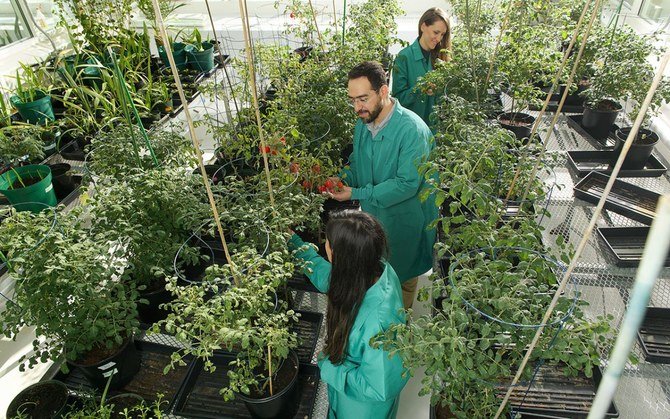RIYADH: In a bid to develop cooperatives in Saudi Arabia’s agricultural sector, Red Sea Global has launched Red Sea Farms Cooperative, also known as Tamala, the Saudi Press Agency reported.
According to the report, Tamala resulted from complementary national partnerships between the government, private and nonprofit sectors.
It noted that Tamala’s board of directors and general assembly comprises 29 members with experience in the agricultural sector, besides farmers from the local community in the Tabuk region.
One of the key goals outlined in Saudi Arabia’s Vision 2030 is strengthening the agricultural sector and ensuring food security.
RSG CEO John Pagano said that Tamala was established to support the farmers of the Tabuk region in particular.
Pagano added that Tamala will also enhance local content by providing high-quality agricultural products to the tourist destinations developed by RSG.
“Agriculture in the Kingdom has flourished significantly, influenced by government support for the agricultural sector and the Tabuk region, in particular, is characterized by the cultivation of citrus, mangoes and fruits of all kinds,” said Pagano.
He added: “This is a national wealth that ‘Tamala’ will invest, develop and support by all possible means to achieve environmental, social and economic sustainability in this vital sector.”
Tamala Chairman Abdullah Al-Dubaikhi said the cooperative will immensely support the Kingdom’s agricultural sector and benefit more than 3,000 farms in the Tabuk region.
“We have worked during the past period to develop an integrated strategic plan based on the region’s ecosystems, natural and human resources, and we have monitored all the challenges and aspects affecting the development of the agricultural sector in the Tabuk region,” said Al-Dubaikhi.
The Red Sea Project, developed by RSG, is one of the most significant initiatives supporting the Kingdom’s national tourism plan as it gradually diversifies its economy away from oil.
Earlier in June, RSG opened its first mangrove nursery, which aims to plant 50 million trees by 2030.
According to a press release, the mangrove seedlings will be cared for in the nursery for approximately eight months until they grow to 80cm. At that point, they will be carefully transplanted in designated mangrove parks within the destination.
Source: Arab News



